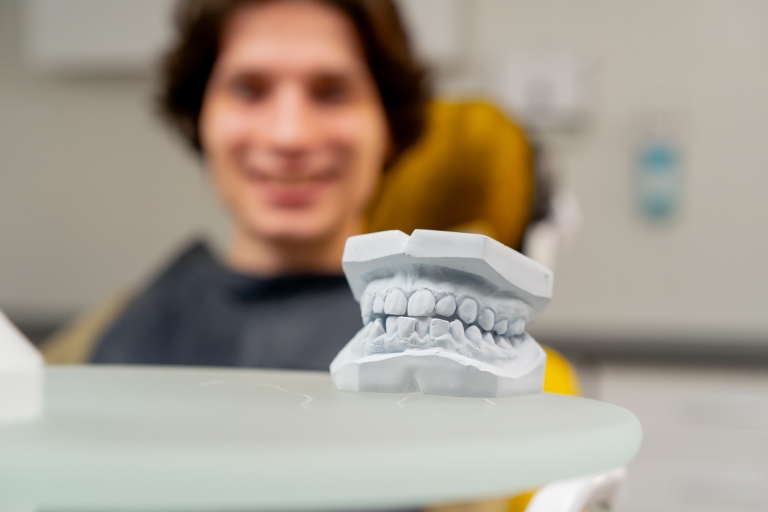Best tips to get over a depersonalization and derealization
Jul-2024TMD - temporomandibular disorder and how is it linked to anxiety, depression & grief
TMD - temporomandibular disorder and how is it linked to anxiety, depression & grief

In one of the previous articles on this website, it has already been talked about how anxiety affects our brain and body, and it was also written a bit about irritable bowel syndrome.
In this article, let's talk about something not many people know about, but it's real - TMD, or temporomandibular disorder.
For many years after losing my son, I have felt weird pain in my face. The doctors have treated me differently - many thought I had a sinus infection, so they have constantly prescribed antibiotics which just made irritable bowel syndrome worse.
I had severe pain in my face but also trouble swallowing, my tongue was somehow burning, and my ears were hurting. It was like someone pointing a needle in your ear. With time, the pain became even worse and was around my entire head, mostly located on the top of the head.
I developed issues with chewing too, so I finally thought it may be something to do with my jaw. One day, I saw an article related to bruxism and realized that I had been doing that for years. Bruxism means that you are scratching your teeth, mostly while sleeping. Anxiety, depression, and grief can definitely affect this and make it worse.
I was into bruxismus so much that I have literally hurt my own jaw and made a lot of teeth to wear off.
Finally, I found a maxillofacial surgery doctor who knew what was wrong. For quite a while, let's say for about two years, I was in so much pain that it started to bring effects on my mental health as well, and you know what your mental health looks like in the first few years of the grieving process.
Why am I writing this article? I am writing it with the purpose of helping someone recognize those symptoms and to know what is wrong with them.
Today, I can happily tell you that this problem is almost over for me. Here is what I've realized so far:
1. When do bruxism and TMD get worse? These conditions can become worse for various reasons, but the symptoms will be more severe when big dates and big triggers are around. Bereaved parents know how these dates affect them. Be kind to yourself and try to take as good care of yourself as possible.
2. Some addictions can make TMD worse. Alcohol is linked to increased teeth grinding and jaw scratching during the night.
3. When in pain - try hot pads. Hot pads can help you to relieve the stress that has accumulated on your jaw. Soft food is recommended as well, and try to avoid carbonated drinks because they can trigger TMD symptoms. For me, cold food was bad as well.
4. See your dentist. Of course, you will have to set an appointment with your dentist to see if there is something that could be done to help you get rid of pain. For some people, braces can help because they will fix your bite which can be problematic for TMJ. A protective guide for your teeth can be created as well, so your teeth won't wear off while grinding at night. I had a few of those, and then even bit through the silicone. My TMD was that bad.
MSM, a supplement, or collagen capsules can be useful as well. This is good advice for those whose TMJ has worn off and has issues with the jaw wrist.
5. Working on your mental health. And while some doctors will tell you that temporomandibular disorder, or better said bruxism, can be genetic, know that working on your mental health is the most important step you can take to overcome this condition.
You can discover more about the best therapies for trauma and generalized anxiety disorder in these articles.
Never been to psychotherapy? Here is how you can get ready for your first one.



